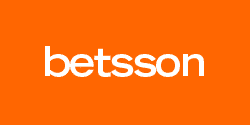Gambling has been legal and widely available in Latvia since achieving independence from Soviet Rule in 1991. Hundreds of gaming sites and dozens of small gambling shops serve Latvian residents with a full range of betting products that include sports betting, casino games, poker and bingo. Finding a place to gamble in this nation of 2 million people is not difficult.
Best Latvia Betting Sites And Apps

Online betting sites are legal in Latvia if they have the proper licensing and players have a decent selection of sites to choose from today. Latvian gambling licenses are expensive and time-consuming to obtain relative to the small population, so many major brands have opted to accept Latvian bettors without licenses.
In more recent times, Latvian authorities have begun blocking internet access to unlicensed operators. A growing number of sites have been added to a central database which local internet service providers are required to block. There are ways around internet censorship, but players should know that Latvian gambling law imposes penalties on those who manage to access unlicensed operators. Thus, it is best to stick strictly with licensed betting sites in Latvia.
Reputable Latvian Gambling Operators
Finding a place to play casino games and bet on sports online in Latvia has become easier in recent years thanks to a licensing system that has approved a growing number of operators. Some of the world’s major brands are now authorized by the Lotteries and Gambling Supervisory Inspection of Latvia to offer real money online gambling.
A handful of international operators continue to offer their services to Latvian as well despite not being licensed to do so, but we advise avoiding sites that are not specifically licensed by local regulators. Current Latvian gambling law actually criminalizes the act of doing business with foreign betting that lack licenses.
Sites that are not licensed are also subject to internet blocking by local internet service providers (ISPs). There are ways to evade any internet block but doing so is a risky proposition. Gamblers caught visiting unlicensed betting sites can be fined as much as €350 per incident. Additionally, gamblers can be further punished if found not paying taxes on their winnings.
The sites you see recommended by this page hold valid Latvian online gambling licenses. Not only is it legal to place at these sites, but each has been thoroughly vetted by undergoing a highly demanding licensing process. We strongly advise all players to stick with licensed sites.
The IAUI has so far issued licenses to 14 operators for different forms of gambling. The majority of these licenses are held by major land-based operators who are also authorized to offer online sports betting and gambling. Nine of Latvia’s licensed operators are also authorized to offer online gaming.
Latvia Gambling Law
Between 1991 and 1994, gambling was mostly unregulated in Latvia. Land-based casinos and gambling parlors operated across the country without oversight from the government. A 1994 law was enacted to provide for the licensing and taxation of various forms of gambling, including bets placed via telephone and “telecommunications.”
The 1994 law laid forth fees for various types of wagering with special licensing fees for each. Some of the fees were quite high. For example, each table game in a casino resulted in a yearly tax of more than 17,000 euros. The legislation also set gross revenue tax rates ranging from 10% to 15% on different forms of gambling.
With the passage of this law, the government started getting its cut from gambling activities but the industry was still largely unregulated. Customers questioned the fairness of games and were hesitant to partake. This led to the creation of the Lotteries and Gambling Supervision Inspection of Latvia (IAUI) in 1998.
Its stated goals include providing for safe gambling for consumers, ensuring compliance with gambling law, supervising operations of licensees, and ensuring the protection of consumers’ rights. The IAUI has the power to draft legislation, inspect gambling activities, issue licenses to operators, review licensing applications and oversee the distribution of gaming equipment.
Laws adopted in 2003 and 2006 further clarified Latvian gambling regulations. The 2003 law dealt with lotteries and explained who may organize lotteries, how they must function, and how permits are issued. The 2006 law overhauled the entire legal framework of gambling in Latvia and specifically addressed internet gambling.
The aptly-named Gambling and Lotteries law of 2006 was a 33-page guide to all legal gambling in the lottery. It specified the following games as legal inside Latvia:
- Slots
- Roulette
- Card games
- Dice games
- Bets
- Totalizators
- Bingo games
- Interactive gambling
One of the key aspects of the Gambling and Lotteries Law was its explanation of the licensing process for online gambling sites. Any company seeking a license is required to submit documentation covering everything from the rules of each game to information about the planned security measures of the operator.
In practice, the licensing process turned out to be slow and expensive for operators. On top of that, Latvia had no mechanism in place to stop citizens from playing at foreign unlicensed gambling websites.
International betting sites also found it difficult to apply for licensing due to gambling laws requiring all operators to be majority-owned by investors from the European Union, the European Economic Area, and the Organisation for Economic Co-operation and Development.
Therefore, the majority of major international gambling operators decided to either exit the market altogether or to ignore local laws and accept Latvian customers without proper licensing. This led to an untenable situation with few regulated options for locals, plenty of unlicensed sites to choose from, and no laws preventing offshore gambling sites from accepting Latvians.
Online Gambling Reforms and a Growing Domestic Industry
Latvian authorities proposed new legislation in 2011 in an effort to crackdown on the offshore industry and encourage operators to get licenses. The new proposals came with higher licensing fees in the range of 422,000 euros but with lower operating taxes. More importantly, the law also stated Latvia’s intention to begin implementing web censorship to block citizens’ access to unlicensed betting sites.
After a flurry of news reports and speculation, interest in the proposal died down and we didn’t hear anything about it for several years. Then in August of 2014, Latvia surprised the world by announcing it had already begun its internet censorship program by adding 20 betting websites to the blacklist of sites local ISPs are ordered to block.
Many more websites were added to the list over subsequent months and years in an effort to boost the domestic online gambling industry, but results were mixed. Local ISPs did not always successfully block access to sites on the blacklist and many players seemed to still prefer offshore operators.
Over time, additional local operators acquired online gambling licenses and the domestic industry began to make a comeback. By 2019, local sites began seeing real results with revenue rising and players increasingly choosing to visit licensed operators. Between the 1,500+ websites that are on the blacklist today and the institution of penalties for players who visit unlicensed operators, Latvia’s efforts to boost the local industry are now bearing fruit.

Mike Murphy is the founder of OnlineBettingSites.com and has over 10 years of experience in the legal online betting industry. A regular attendee of industry trade shows and conferences, Mike is a strong proponent of regulated markets and responsible gambling policies.


